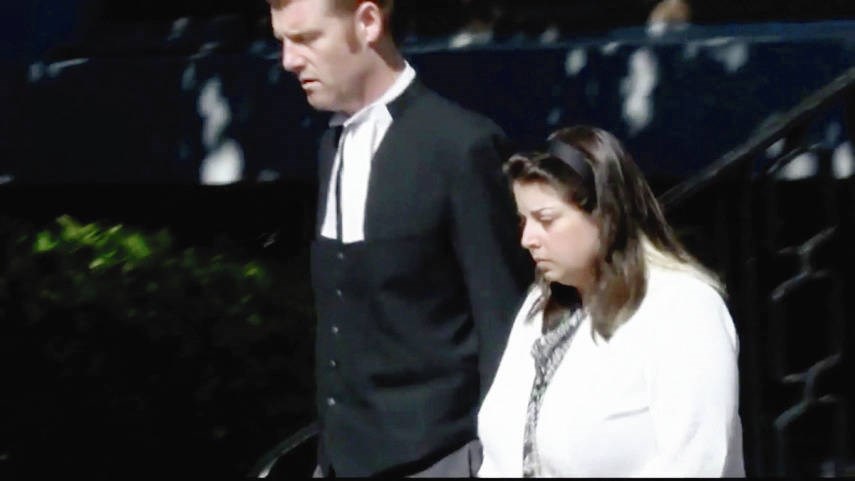A Victoria woman has successfully appealed her conviction for the first-degree murder of her 18-month-old daughter in September 2015.
The B.C. Court of Appeal has ordered a new trial for Kaela Janine Mehl, who was convicted by a jury in October 2017 and sentenced to life in prison with no possibility of parole for 25 years.
In its decision, the appeal court found that Mehl’s lawyer failed to provide professional assistance. “Viewed collectively, the acts and omissions of trial counsel resulted in a trial that was unfair in fact and in appearance,” said the unanimous decision.
“Additionally, if reasonable professional assistance had been given, there is a reasonable probability that the outcome would have been different.”
Mehl admitted she killed her daughter Charlotte by feeding her yogurt laced with a fatal dose of Zopiclone, then smothering her in the early morning of Sept. 16, 2015.
She and husband Daniel Cunningham had become embroiled in an ugly, tumultuous custody battle for their child after separating in May 2015.
Their exchanges of the toddler took place at the Saanich police station.
During Mehl’s trial, the behaviour of one juror, who made sympathetic hand gestures toward the baby’s father and his family, undermined trial fairness, said the appeal court. The behaviour of the juror — whose identity is protected by a publication ban — was never brought to the judge’s attention.
The appeal court found that on the first day of the second week of the trial, the juror began looking directly at the Cunningham side of the gallery and smiling. That day and the next, the juror made a close-fisted double tap over the heart on at least two occasions. Although the defence lawyer had witnessed the gesture, he decided not to raise it with the judge.
The juror also winked and smiled at the Cunningham family later in the trial. On the day of closing submissions, the juror smiled, smirked and nodded at the Cunningham family. When Mehl was convicted, the juror made the tapping gesture again.
The appeal court found that a reasonable person would find there was a real likelihood the juror was not impartial,
and there had been a failure of the appearance of justice.
At the trial, the defence had presented testimony from two psychiatrists who argued that Mehl was suffering from a mental disorder that significantly compromised her mental state and impaired her ability to think in a rational way.
The Crown’s theory was that Mehl was suddenly faced with the reality that she would have to share custody of her daughter with Cunningham and his family, whom she disliked, and she killed Charlotte to prevent them having access to the little girl.
Mehl hired private investigators, surreptitiously recorded exchanges and followed the family to find evidence that the child wasn’t safe with them. She went to the police and the Ministry for Children and Family Development, but did not get the help she needed. At the same time, the courts were increasing the family’s access to the child.
On Sept. 15, 2015, frustrated, stressed and losing hope in the custody battle for the child, Mehl decided to kill herself and her daughter because she did not want to leave the child behind to be raised by her ex-husband’s family, the Crown said.
Mehl began researching fatal doses of Zopiclone and started writing a suicide note. She fed the drugs to the child and smothered her. Then Mehl took what she believed was a fatal dose of the sleeping pills and finished writing her suicide note, which she emailed to the family of her ex-husband and the family lawyer.



